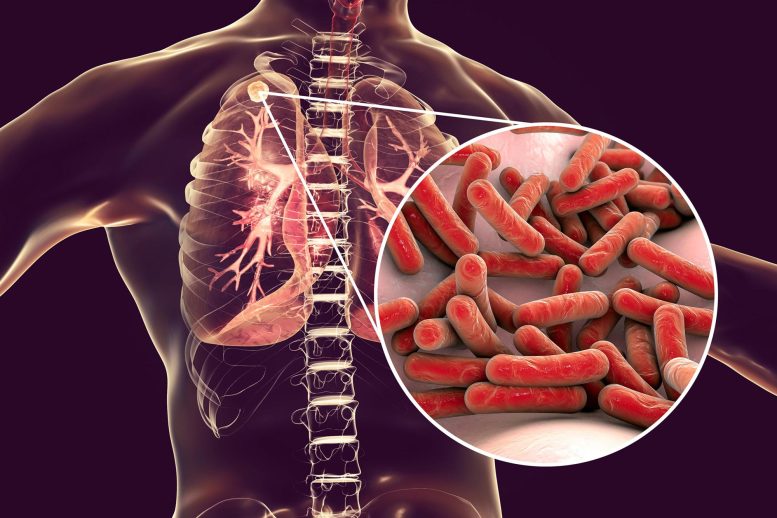[ad_1]

A brand new examine underscores the numerous however missed position of malnutrition within the international tuberculosis (TB) epidemic, advocating for the inclusion of dietary interventions in TB elimination efforts. By treating TB as each a medical and social illness, the analysis highlights the potential for vital reductions in TB incidence and mortality charges via complete methods that deal with malnutrition.
Recognizing N-AIDS as a vital issue and coexisting situation of can enhance the detection, prevention, and eradication of TB.
Tuberculosis (TB) stands because the main explanation for infectious mortality globally, accounting for 10.6 million new cases and 1.6 million fatalities in 2021. Notably, one out of each 5 new TB instances was linked to malnutrition, a determine greater than twice as excessive as these attributed to HIV/AIDS. Much like HIV/AIDS, malnutrition results in a kind of secondary immunodeficiency known as nutritionally acquired immunodeficiency syndrome (N-AIDS). Regardless of this, the position of N-AIDS within the battle towards TB has been largely missed compared to HIV/AIDS inside worldwide TB eradication initiatives.
In a evaluation paper led by Madolyn Dauphinais, MPH, researchers at Boston College Chobanian & Avedisian College of Drugs together with collaborators from Cornell College, College of Virginia, and the Worldwide Union Towards Tuberculosis & Lung Illness, and Jawaharlal Institute of Postgraduate Medical Training and Analysis, reviewed a long time of information and make the case that N-AIDS, identical to HIV/AIDS, additionally deserves particular consideration within the effort to eradicate TB.
“Whereas there have been essential technological developments to detect and deal with TB, our interpretation of the present literature is that we gained’t be capable of make substantive modifications in TB incidence and mortality charges with out motion on malnutrition,” explains corresponding writer Pranay Sinha, MD, assistant professor of medication on the college.
The Hyperlink Between Malnutrition and TB
After studying greater than 75 papers on diet and TB, the researchers briefly recount the influence that actions on HIV had on the worldwide TB pandemic. They level out that malnutrition is the main explanation for immunodeficiency worldwide. “Individuals with extreme malnutrition, like individuals with HIV, are at elevated threat of TB. We are able to leverage what we already find out about malnutrition to help us in detecting, treating, and stopping TB,” says Sinha, who is also an infectious illness doctor at Boston Medical Middle.
Whereas the researchers consider it’s pressing to proceed to develop newer instruments, approaches shouldn’t be restricted to the biomedical realm. For instance, a examine included of their evaluation discovered that TB incidence amongst family contacts of individuals with tuberculosis was diminished by 40% by offering them with a cheap meals basket. “It is necessary for the lay viewers to grasp that TB just isn’t merely a medical illness, it’s a social one and our elimination efforts should acknowledge that,” he provides.
In response to the researchers, motion on malnutrition can have a number of advantages past TB as properly. All through their paper, they discover the thought of leveraging dietary interventions to detect, stop, and deal with TB extra successfully. They consider this paper will assist advocates, clinicians, policymakers, and voters suppose otherwise concerning the administration of individuals with TB in addition to the wanted international well being investments to eradicate it.
Reference: “Nutritionally acquired immunodeficiency have to be addressed with the identical urgency as HIV to finish tuberculosis” by Madolyn R. Dauphinais, Kobto G. Koura, Prakash Babu Narasimhan, Saurabh Mehta, Julia L. Finkelstein, Scott Ok. Heysell and Pranay Sinha, 12 January 2024, BMC International and Public Well being.
DOI: 10.1186/s44263-023-00035-0
[ad_2]
Supply hyperlink

